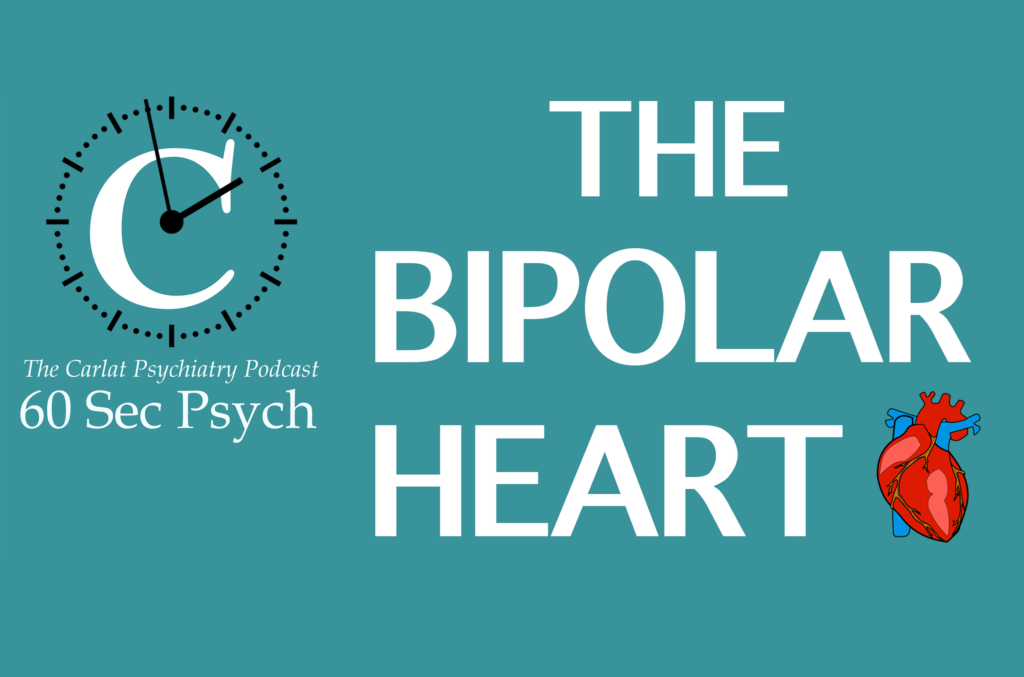An international task force issues a warning about the risk of cardiovascular disease in bipolar disorder. A review of: Goldstein BI, Baune BT, Bond DJ, et al. Call to Action Regarding the Vascular-Bipolar Link: A Report from the Vascular Task Force of the International Society for Bipolar Disorders. Bipolar Disord. 2020;10.1111/bdi.12921 [Link]
Date Published: 5/6/20
Transcript:
The International Society for Bipolar Disorders issued a “call to action” this week about the risk of heart disease in bipolar. Some take home points:
- Bipolar doubles the risk of heart disease, and the risk is not fully explained by lifestyle
- Heart disease begins early in disorder – it starts in their early 40’s as opposed to age 53 for depression and 59 for the average healthy control.
- Manic symptoms elevate the risk more than depressive ones
- What’s causing all this heart disease? Inflammation, oxidation, decreased BDNF, and genetics are all possibilities
- The authors did not link it to medications, many of which lower the risk perhaps by treating the mood disorder. That’s true even with the atypicals, but especially with lithium which has positive effects on cardiac remodeling.
Treating bipolar means more than stabilizing mood, and we have to think about their whole body much as an endocrinologist does with diabetes. Tell your patients that bipolar is not just in their head, and guide them toward lifestyle changes like walking, Mediterranean diet, and smoking cessation.
Got feedback? Take the podcast survey.


_-The-Breakthrough-Antipsychotic-That-Could-Change-Everything.jpg?1729528747)



